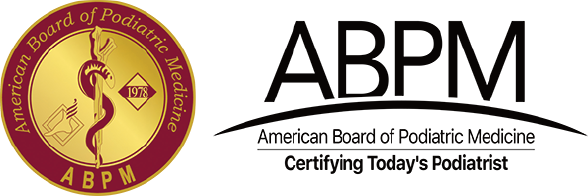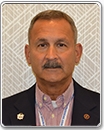
ABPM Recommends Outcome-Based Assessment for Podiatric Residency Programs

Colleagues, Residents and Students,
At this point in our profession’s growth, it is imperative that we progress towards parity with our allopathic and osteopathic colleagues, in order to complete our integration as a medical specialty into the overall health care delivery system. Podiatric residency programs should be moving toward a greater emphasis on outcome-based assessments, which have been found to be a more accurate and efficient system for training doctors. Some podiatric residency programs and all orthopedic training programs have already progressed to a greater emphasis on outcome-based assessment and developed easy to use assessment forms to measure the specific competencies required of the residents. The American Board of Podiatric Medicine (ABPM) believes that this is a trend that should be included in the Council on Podiatric Medical Education (CPME) 320 Document re-write currently under discussion by CPME. CPME 320 is the training model, the set of standards by which podiatric residency programs are run. This opportunity only comes up once every 6 years. Now is the critical time and all of us that care about residency training and education should have a voice in this process.
The American College of Graduate Medical Education (ACGME) began the use of Milestones, and outcome-based assessment system, in 2013. In the years since, some podiatric residency programs adopted this model as well. If we follow the recommendation of the CPME 320 ad hoc committee and continue our emphasis on MAVs over outcome-based assessments similar to the Milestone model, we will remain a decade or longer behind our colleagues. We owe it to the young physicians, residents and students to move this profession forward in this way.
Milestones are outcome-based assessments within 6 general areas of competency: Medical knowledge, patient care, interpersonal communication skills, practice-based learning and improvement, professionalism, and systems-based practice. Milestones are “intended to create a logical trajectory of professional development in essential elements of competency and provide a measurable framework of specialty specific outcomes”1 (NEnglJMed 2021;366(11):1051-1056).
At the onset of this cycle of the CPME 320 re-write, the ABPM submitted a request to the committee for the implementation for Milestones, for an alternate hybrid Milestone/MAV model. Both were summarily dismissed by the committee.
The ABPM strongly believes that CPME should be promoting a greater emphasis on Milestones. CPME should be advocating for the changes in our training and education which promote parity by mirroring ACGME and mandating breadth and depth of residency training which will provide our future Podiatric Physicians the best professional training and education possible.
And who in our profession does this critical re-write of the CPME 320 Document affect most? The residents and students. It affects the quality of their education and training. It shall affect their future careers in many ways, principally in opportunities for obtaining hospital privileges, leadership positions on committees and also salary opportunities, examples of which are replete in many private and VA hospitals nationwide. These opportunities will have a chance to improve only by our profession moving forward on the path to parity.
Ironically, there are several CPME approved podiatry residency programs that are already based on the ACGME model which operate in the allopathic and osteopathic residency programs within the same hospital system. One of these models was sent into the CPME 320 ad hoc committee at the very beginning of the re-write process.
In a letter dated March 5, 2019, the APMA BOT wrote to the CPME 320 Residency Ad Hoc Advisor Committee; “We also encourage you to transition from MAV’s to the Milestones/Competencies model adopted by ACGME. A competencies model for both surgical and podiatric medicine milestones would allow residency directors to better assess resident’s strength and weaknesses and focus on being competent in areas of weakness. Ultimately this should lead to graduating a more completely trained and competent podiatric physician and surgeon.”
Ben Franklin said, “An investment in education always pays the best dividends”.
In conclusion, we have a rare opportunity to move the manner in which our residents are educated closer to the allopathic/osteopathic model with this re-write of CPME 320. We must seize this opportunity for the benefit of the residents and students in training.




Comments
There are 2 comments for this article
Parity with ACGME? Fantasy. The American Orthopedic Foot and Ankle Society censures or threatens censures of its members if they allow podiatry residents in the operating rooms, and the GME officials at the hospitals where this occurs condone that behavior and do nothing about it while accepting federal money to train podiatry residents. In my institution, the solving of that dilemma resulted in the loss of 23 CPME approved residency spots. And more truthfully, the MAV requirements were solely responsible, and the refusal of the orthopedic surgeons to teach them was the nail in the coffin. Where is the screaming objection from CPME, ABPM, APMA, etc? Nowhere. Why hasn't the AOFAS been outed on this? The only thing that will bring parity is bundled payments, the way of the future. When that occurs, and foot surgery is included, that's the end of podiatry in any hospital that has an orthopedic residency program and is not starving to death. ACGME recognizes and applies only to students who went to medical school. Podiatry school is not medical school, and only comes close when the syllabus is laid out on paper, but the actual medical school experience, dwarfs the podiatry school experience in still too many ways. Its time to get truthful with college students who are interested in podiatry and to encourage primary medical care of the lower extremity, as bundled payments are going to kill the glory of specialty surgery. Just my opinion. Hope I am wrong
It was discouraging to read the recent milestone-based newsletter. I worked with one of the ad hoc committee members last year and produced a prototype milestone project for CPME 320. It was certainly an example only and would need to be modified and comprehensive, but I based this on my extensive ACGME based milestone project experience here at the University of Michigan. I created a comprehensive milestone project for our fellowship as well based on my formal training in medical education, which includes curriculum development. It sounds like the committee, or some on that committee may not be up to the task, or perhaps not open to the task, of creating a modern milestone based curriculum. Im sure these are good folks, but it begs the question, are they the right people if they are unaware of the standards set in medical education? Competency based medical education is widely accepted as the standard in allopathic medicine. This is not going away, they will have to accept it sooner or later, it might as well be now while we are working on it? Michael E. Munson, DPM Assistant Professor of Internal Medicine Fellowship Director- Podiatry University of Michigan Medical School